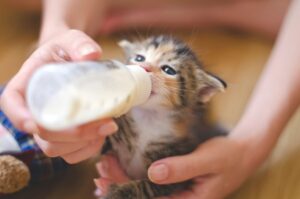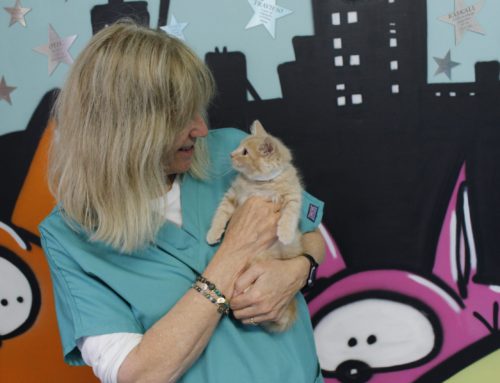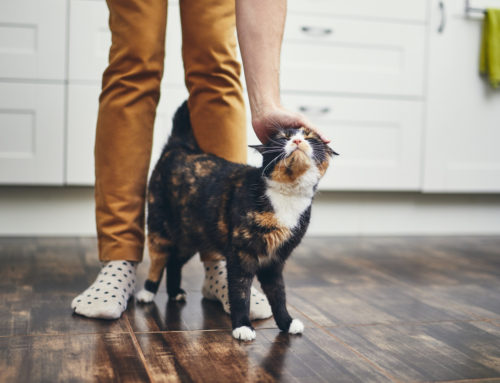 Whether you are a seasoned cat rescuer or someone who just happened to find an abandoned litter of newborn kitties under your porch, we hope you’ll benefit from these useful tips. They were provided by the late Kimberly Pauli, a dear friend of FixNation who was devoted saving and improving the lives of thousands of homeless kittens.
Whether you are a seasoned cat rescuer or someone who just happened to find an abandoned litter of newborn kitties under your porch, we hope you’ll benefit from these useful tips. They were provided by the late Kimberly Pauli, a dear friend of FixNation who was devoted saving and improving the lives of thousands of homeless kittens.
Wash your hands!
Caring for newborn kittens can be daunting, especially when they are so fragile and highly susceptible to germs and disease. Be sure to properly wash and sanitize your hands before and after holding any newborn kitten.
Bottle feeding 101
- Newborn kittens need to be bed by bottle every 2-3 hours (yes, even throughout the night), so set an alarm before you go to bed. Even if kittens are asleep they need to be awakened and fed to stay on schedule. For the first two weeks they will only consume very small amounts of milk at a time, hence the need for frequent feedings.
- Kittens should be fed a milk replacement specially formulated for kittens. It’s crucial that newborn kittens receive extra nutrients provided by quality milk replacements just as they would from their own mother’s milk. After the first two weeks, kittens should be able to go for eight hours at night without a feeding. When they do feed, they will be ravenous and will probably nurse for 30-60 minutes at a time.
- When feeding kittens, place them on a towel spread across your lap or a table for support. After opening the kitten’s mouth, insert the bottle’s nipple while holding the kitten’s head firmly; this allows the nipple to stay in the center of the kitten’s mouth place while feeding. This also encourages the kitten to suckle rather than to chew on the nipple. When the nipple is properly placed, the kitten’s tongue creates a sort of vacuum seal around it, enabling the kitten to nurse properly. When you remove the nipple, listen for a popping sound—like pulling a cork from a wine bottle—which indicates the kitten has nursed properly.
- After nursing, use a wet cloth to gently wipe off any milk spilled on the kitten’s mouth or body. If the milk is allowed to dry it can be difficult to remove later.
Potty training
- After feeding, it’s very important to dab the genital area very gently with a moistened cotton ball. This stimulates the kitten to urinate and defecate.
- The skin in the genital area is paper thin and easily irritated, similar to diaper rash with a human baby. If a rash does occur, apply a tiny amount of Desitin on the irritated area. Use as little as possible—the fewer chemicals the better for a kitten’s small and vulnerable body.
- With their liquid diet, kittens tend to urinate more often than defecate, and their feces will often be super soft and the color of mustard. Don’t be alarmed, this is completely normal!
- If kittens soil themselves or their bedding, it’s important to clean it up ASAP. Like a newborn human, a newborn kitten will cry and cry when their bedding is wet and dirty (and who can blame them)? So try to be as diligent as you can.
- When washing kittens, always use hypoallergenic or organic soaps—such as Ivory or Phisoderm—and gently towel them dry.
- Use a blow dryer set on LOW and hold it far enough away from the kitten so that the air isn’t too hot. You don’t want a burned kitten!
A warm kitten is a happy kitten
- Make sure newborn kittens are kept nice and warm all the time. Place a covered hot water bottle in the box or basket with them.
- No hot water bottle? Rubber gloves are a great alternative. Fill them like you would a water balloon and tightly fasten them at the end with a knot, like tying off a balloon.
- Another option: fill a plastic sports bottle or jug with warm water and wrap it in a cozy blanket.
- NEVER use a standard heating pad, as this is a dangerous fire hazard to both animals and humans if left unattended.





